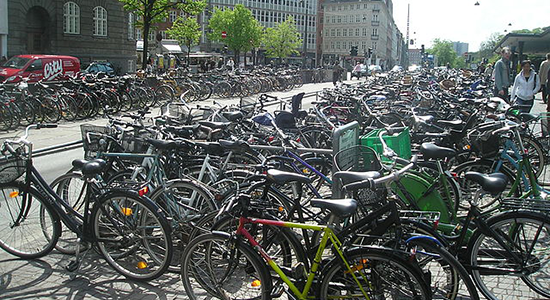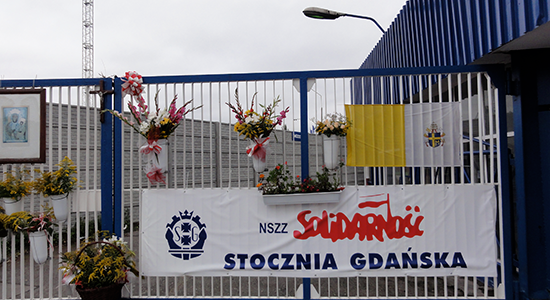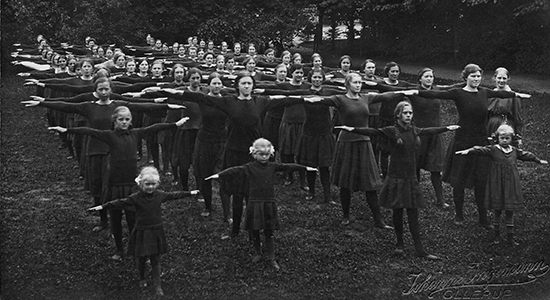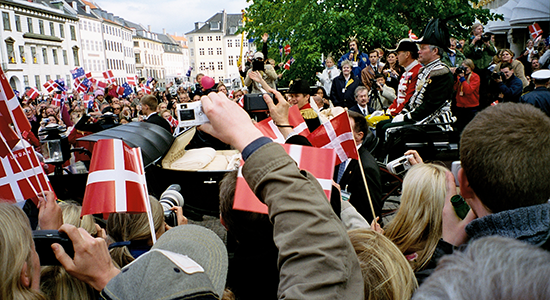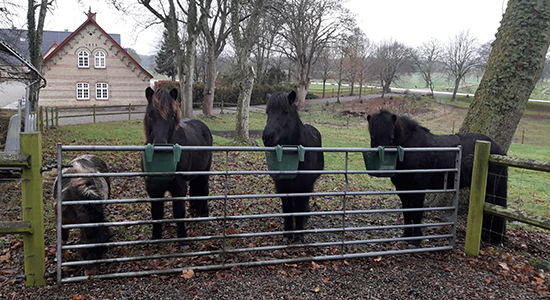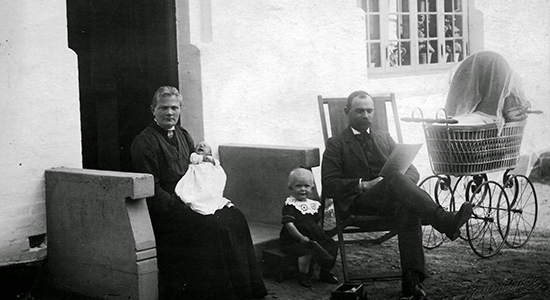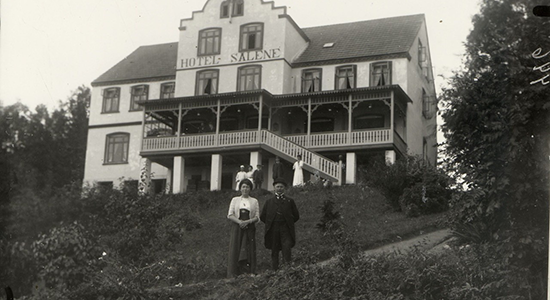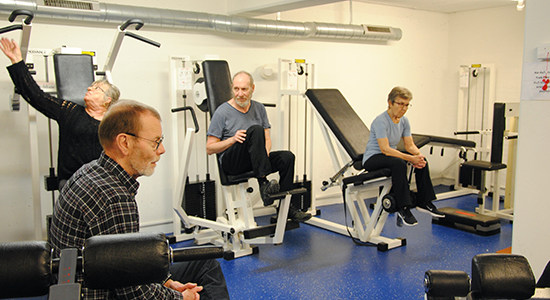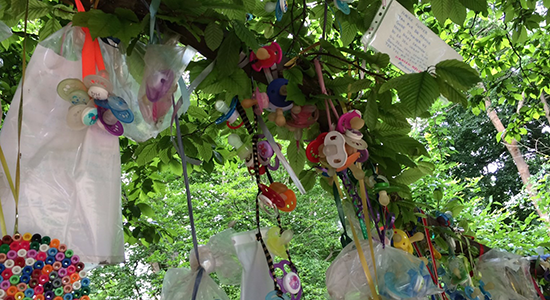Ethnology
The Ethnology section focuses on culturally different ways of living in the past and present and changes to them in a European and global perspective.
Research in practice
In practice, ethnological research is based on studies of archives and fieldwork and involves developing qualitative methods and innovation studies. The section considers the history and theory of the discipline of ethnology as part of the reality it seeks to conceptualise, and with this in mind analyses and views them from the perspective of cultural history.
The research is conducted in close collaboration with other disciplines, involving both the private and public sectors, and through active links with international research and partner universities.
Ethnology grounds analysis of human difference in the empirical investigation of everyday ways of living in and perceiving the world. From the perspective of everyday life, ethnologists observe and analyse how people seek to practice and reproduce the conditions for their specific version of the 'good life', as well as how people engage with socio-cultural difference.
Ethnologists work with culture as practices and processes through which cultural forms are shaped, maintained, and transformed. Cultural variation and complexity are analyzed in concrete versions and regarding the temporal, spatial, social, and material dimensions and differences. Thus, ethnological research investigates different forms of relations, as cultural forms can both enable each other and systematically exclude each other; coexist and compete. Everyday life is not perceived as an entity or a phenomenon in and of itself across time, space, and social environment but rather, everyday life, as an object of study, is configured and reshaped within specific types of problematisations, political agendas, and controversies.
The sociability, subjectivity, discourses, and materiality of everyday life are examined in both a cultural-historical and a contemporary ethnographic perspective in Denmark and beyond. The European dimension of ethnology is attained by ethnologists exploring the construction of Europe as an idea and as a space, and by employing various reflexive strategies to counter Eurocentric understandings of the European by looking at Europe from its margins, from the perspective of other parts of the world, through European borders, and by thematizing Europe's (post)colonial legacies.
Ethnology has a long tradition of exploring – through various historical periods, and in agrarian, industrial or post-industrial societies – how the capacity for subsistence and production is closely connected to issues such as working life, social contradictions, relationships between family and work. These conditions must be viewed as a part of complex everyday practice and materiality (including the use of tools and work processes), as well as of organisational, political, and discursive constellations. The major historical shifts in these areas are also a key issue.
One of the characteristic features of the global balance of power in the early 21st century is the shift from west to east, a trend particularly evident in manufacturing. Since around the millennium, Denmark and other Western countries have seen a range of industries and labour-intensive businesses closing or moving their operations to other countries. These trends have partly been reversed through increased protectionism and political attention to security of supply chains, just as more sustainable forms of production are spreading in response to climate crisis and biodiversity loss.
At the same time as the economy became globalised, national labour markets were also opened, and the regulations that were built up during the 20th century were challenged by competing forms of regulation (e.g., from former Eastern Bloc countries). This brought about fundamental changes in working life. For example, fixed working hours, demarcation between different areas of work, and clear borders between work and leisure could no longer be taken for granted. ‘Active aging’, ‘mental health’, ‘value-based management’, and ‘lifelong learning’ have become important focus points in an effort to ensure long-ranging and healthy working lives and to prevent wage employees from leaving the labour market through ‘quiet quitting’, resignations, and alternative career paths. Today, flexible, innovation-oriented employees are in demand, and the emphasis is on entrepreneurship and innovation, which are considered necessary for society’s survival.
Researchers: Aske Juul Lassen, Niels Jul Nielsen, Katy Overstreet
Ethnologists analyse everyday life and culture in relation to overarching social and political conditions. Thus, relationships between the state, society, and citizens in changing historical contexts play a vital role in this ethnological research.
Relationships and practice(s)
Ethnology conducts research into topics such as: changing governance rationales and technologies; European, national, regional, and local forms of identity; the relationship between state, market, and everyday routines and practices; processes of subjectification and interpellation in relation to individuals, lifestyles, political/social institutions, and collective actors. Ethnological research also covers the opportunities of various actors and (social, religious, or ethnic) groups to set the political agenda. The tensions between social difference and cohesion are key to understanding these practices and relationships.
Ethnological research stresses the importance of material and discursive practices in understanding how citizens, society, and state take shape in local, national, European, and global contexts.
Supranational developments and local changes
Studies of contemporary societies have identified several supranational developments that are playing an increasingly prominent political economic role. Europeanisation and the redrawing of borders are changing individual agency in relation to national, regional, and local government; economic globalisation is changing the fundamental terms of the relationship between states and citizens – as are the protectionist measures that increasingly appear to reverse the trend of the globalist era; new forms of governmentality are changing the way in which people become the subject of interventions and social innovations. Demographic development, nationally as well as internationally, changes inter-generational connections and spurs a rethinking of welfare and social models.
Mobilisation civil society
Ethnological research at Saxo also examines different forms of mobilisation of civil society such as voluntary refugee reception, neighbourly assistance during the Covid-19 pandemic, outsourcing of welfare tasks to voluntary organisations, as well as various green movements.
Researchers: Tine Damsholt, Frida Hastrup, Anne Folke Henningsen, Astrid Jespersen, Niels Jul Nielsen, Marie Sandberg, Mark Vacher
In Ethnology, research on bodies and embodiment engages modes of sensing through choreographies and movement as well as performance of gender, emotions, affect and moods. In addition, experiences and practices related to illness, health, and aging play an important role in approaches to the body at Ethnology. For many, the good life is rooted in the materiality and transience of the body, which, like gender and aesthetics, interweave with ideological and discursive processes.
Performance analysis shapes ethnological perspectives on body, gender, senses and affect with an emphasis on practice and on material-discursive dimensions, but phenomenological perspectives on embodiment are also used. These different approaches also intertwine in the interest in emotions and moods as bodily but also social and cultural phenomena, as particular affects can 'stick' to certain bodies. Ethnological studies of bodies and ways of practicing one's body often take their point of departure from everyday life, where daily micro-practices around clothing, hygiene, food, and physical care for others, including more-than-human bodies, are in focus. In addition, self-care and self-improvement technologies can form a critical nexus in power relations and self-experience.
For several years, ethnology has formed an active environment within humanistic health research, through studies within, among other things, ageing, life course, lifestyle, working life and health practices. Everyday life teems with objects, technology, information and understandings of what is healthy and unhealthy. Ethnologists engage aging, for example, not as something that belongs exclusively to a particular life phase, but with a focus on the life course and on the role that health and health perceptions play at different ages, and in different cultural and social contexts. Internationally, these topics fall within the field of medical humanities, to which Ethnology contributes with a focus on lifestyles and living conditions, meanings, and meaning-making as well as socio-material forms and practices.
Ethnologists collaborate with a number of other actors both within and outside the humanities. Ethnological research projects often include an interdisciplinary dimension, where ethnologists contribute with contemporary fieldwork, cultural-historical perspectives as well as interventionist, co-creative and committed approaches.
Researchers: Line Steen Bygballe, Tine Damsholt, Astrid Jespersen, Aske Juul Lassen, Marie Riegels Melchior, Signe Mellemgaard, Katy Kelsey Overstreet, Marie Gorm Aabo
This research area involves studying collective processes related to remembering, forgetting, and commemorating. We explore how the past manifests in the present, how the past is contested, and how memory and history unfold through a range of practices. Memory culture is one of the key concepts in this research, which involves the political and everyday staging and uses of the past, including how museums and other cultural institutions produce, manage and communicate both natural and cultural heritage. Ethnologists at the Saxo Institute also study how memory culture relates to identity politics and the production of identity, including cultural, religious, national and European identity.
Our research focuses on the materiality inherent in cultural heritage sites and objects and the important role of intangible cultural practices and relations in political and everyday life.
Overarching areas studied include the cultural and natural heritage, memory culture, and the uses of history and museum studies.
Researchers: Mikkel Bille, Tine Damsholt, Frida Hastrup, Anne Folke Henningsen, Marie Riegels Melchior, Signe Mellemgaard, Marie Sandberg
Climate change, political and economic crises as well as demographic changes will affect migration and human population movements in the future. In Ethnology at the Saxo Institute, we work with the conditions for and the everyday consequences of migration across borders, as well as the resulting transformations of national and European labour markets, political institutions, and social formations.
Ethnology works with a broad understanding of migration processes, which includes all aspects from departure to arrival as well as different forms of migration such as transit migration, circular migration, and transmigration. We investigate the many different actors, infrastructures, and networks involved in these migration processes. Ethnologists examine the conditions of migration in relation to state and EU legal migration policies and the specific social technologies that regulate, facilitate and/or limit migration. Global changes in business and production landscapes and the ways in which the transfer of production from the West to Asia and Eastern Europe affects migration and figures prominently in our research.
The post-9/11 global increase in border security and the use of deterrence policy against refugees and asylum seekers, have put the question of cohesion of populations and social diversity on the political agenda in new ways. These processes have deepened in connection with refugee flows caused by war and climate change.
Migrations take on different patterns and are motivated by a variety of aspirations and demographic factors. For example, migrants may move as part of family reunification schemes or through gaining refugee status due to political, ethnic or religious persecution. Migration can also be welfare or age-related. The diversity of motivations for migration raises new questions regarding social and political rights in the countries involved.
European dimensions of migration processes are the focus in Ethnology at Saxo, but these processes are examined in comparison with other parts of the world. It is also characteristic of the ethnological approach that current migration issues are viewed through a cultural history lens.
Researchers: Amin Younes Aoussar, Katrine Kohl, Niels Jul Nielsen, Lotte Pelckmans, Marie Sandberg, Mark Vacher, Zachary Whyte
More than half of the global population lives in cities. The Ethnology section explores how humans relate to the social and spatial qualities of such locations. Through historical and contemporary studies, we investigate how people use, adapt, and make sense of urban environments. The starting point for our studies is to look at how material qualities, ideologies, design, and technologies are entangled in the experience and constitution of spaces.
Our research currently explores the role of technologies in shaping domestic and urban spaces, design practices, home-making, atmospheres, and sensory politics. In addition, we explore cities as designed environments shaped by ideologies regarding everyday life, productivity, consumption, and diversity. Through ethnographic and cultural historical research, we examine how such ideologies materialize, and as importantly, how they collide with the city as lived space.
Cities constitute key formations in the so-called Anthropocene era. As locations of intense emission of carbon dioxide, congestion, and exploitation, cities not only play a part in shaping the planet, cities also represent a major challenge to the development of a sustainable future. As cities are growing and attracting increasing numbers of people, there is a need to understand how the built environment is not merely made up of spaces for movement, sleep, eating and work, but is likewise involved in processes of identity formation and contestation. The green transition involves rethinking the urban infrastructure that both integrates energy efficient technologies, managing water and heat at a structural level, and issues around well-being, safety, and health at a more basic human level. In other words, how we (re)design cities, and how we (re)organize our lives in them is of existential importance not only to city-dwellers (human and non-human) but also on a global scale.
By focusing on the multiple interconnections between structural and existential parameters, ethnology offers crucial perspectives on ways of living and imaginaries that shape the built environment.
Researchers: Mikkel Bille, Anne Folke Henningsen, Mark Vacher, Adam Veng
The Ethnology section explores how humans relate to the more-than-human world. We study historical and contemporary ways in which people, histories, environments, resources, and places co-constitute each other, and we investigate how specific cultural practices both structure and are structured by material surroundings. The starting point for our studies is to look at how nature and culture are always intertwined.
Research in the Ethnology section currently explores practices of writing natural history, agricultural processes, human-animal relations, food production, everyday practices of sustainability, climate change, soil management, green urban design, as well as the policies, cultural histories, societal structures, technologies, knowledge economies, and ideas about the future that frame all of these fields of inquiry.
The concurrent ecological crises of climate change, biodiversity loss, and environmental degradation make it pertinent to provide basic research into visions for cultural and societal change. A green transition, whether conceived nationally, regionally or globally, requires new cultural forms as well as mobilization of cultural historical resources of crisis management. If the current era is the Anthropocene – human-made – we need to understand how specific and historically situated resource practices have come about – whether within everyday family life, as nation-building projects, through scientific progress or global capitalist extraction.
With its parallel focus on multiple scales, presents, pasts and futures, and its view to both human and more-than-human actors, ethnology offers vital insights into landscapes, environments, and sustainability.
Researchers: Mikkel Bille, Signe Brieghel, Tine Damsholt, Frida Hastrup, Signe Mellemgaard, Niels Jul Nielsen, Katy Overstreet, Mark Vacher
Centres, collective projects and networks |
Researchers and lecturers
| Name | Title | Phone | |
|---|---|---|---|
| Aabo, Marie Gorm | PhD Fellow | ||
| Aoussar, Amin Younes | PhD Fellow | +4535324284 | |
| Bille, Mikkel | Professor | ||
| Botelho, Flora | Assistant Professor | ||
| Damsholt, Tine | Professor | +4551298920 | |
| Feil, Emma Froma Pretzmann | PhD Fellow | +4535322140 | |
| Fjorback, Sofia Sif Overby | PhD Fellow | +4535330655 | |
| Hastrup, Frida | Professor | +4551298963 | |
| Haumann, Ida Kirk | PhD Fellow | +4535330790 | |
| Henningsen, Anne Folke | Associate Professor | +4551299011 | |
| Heupel Santos, Fabio | Assistant Professor - Tenure Track | +4535327963 | |
| Jespersen, Astrid Pernille | Professor | ||
| Lassen, Aske Juul | Associate Professor | ||
| Lindelöf, Hélène Catharina | PhD Fellow | +4535334114 | |
| Mellemgaard, Signe | Associate Professor | +4551298933 | |
| Overstreet, Katy Kelsey | Assistant Professor - Tenure Track | +4535324775 | |
| Riegels Melchior, Marie | Associate Professor | +4523707974 | |
| Sandberg, Marie | Associate Professor - Promotion Programme | +4551299017 | |
| Vacher, Mark | Associate Professor | +4551298578 | |
| Veng, Adam | Enrolled PhD Student | ||
| Whyte, Zachary | Associate Professor |

